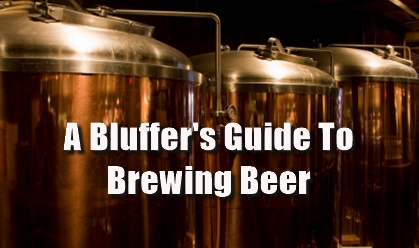A well informed team, with specialist knowledge of the products there are serving is an increasingly important part of customer service so this short guide will, hopefully, put you ahead of your market place as you gain a reputation for great customer service with your incredible knowledge of all things beer!
Whilst you might not end up a fully fledged beer sommellier you will, at least, be able to bluff your way through most brewing related conversations.
For a brilliant illustrated description of the brewing process visit the Hook Norton Brewery website
An A-Z of Brewing Terms
Ale – A beer brewed from a top-fermenting yeast with a relatively short, warm fermentation.
Beer – Any beverage made by fermenting a wort made from malted barley and seasoned with hops.
Bitters – vary in colour from gold to dark amber
Conditioning – An aspect of secondary fermentation in which the yeast refine the flavours of the final beer. Conditioning continues in the bottle.
Ethanol – The type of alcohol in beer formed by yeast from malt sugars.
Fermentation – The total conversion of malt sugars to beer.
Finings – Ingredients such as isinglass or ‘Irish moss’ etc, that help the yeast settle out of finished beer.
Hops – Hop vines are grown in cool climates and brewers make use of the cone-like flowers. The dried cones are available in pellets, plugs, or whole.
Gravity – Like density, gravity describes the concentration of malt sugar in the wort. The specific gravity of water is 1.000 at 59F. Typical beer worts range from 1.035 – 1.055 before fermentation (Original Gravity).
Grist – The term for crushed malt before mashing.
India Pale Ale or IPA – is a beer style within the broader category of pale ale.
Lager – A beer brewed from a bottom-fermenting yeast and given a long cool fermentation.
Mash – The hot water steeping process that promotes enzymatic breakdown of the grist into soluble, fermentable sugars.
Mild Ale – is a low-gravity beer, or beer with a predominantly malty palate, that originated in Britain in the 17th century or earlier, modern mild ales are mainly dark
Porter – is dark style of beer originating in London in the 18th Century, descended from brown beer, a well hopped beer made from brown malt.
Primary Fermentation – The initial fermentation activity marked by the production of carbon dioxide as sugar is converted to alcohol.
Racking – The careful siphoning of the beer away from the trub.
Secondary Fermentation – A period of settling and conditioning of the beer after primary fermentation and before bottling or putting into casks.
Stout – is a dark beer made using roasted malt or roasted barley
Trub – The sediment at the bottom of the fermenter consisting of hot and cold material, hop bits, and dead yeast.
Wheat Beer – is a beer that is brewed with a large proportion of wheat in addition to malted barley.
Wort – The malt-sugar solution that is boiled prior to fermentation.
Zymurgy – The science of brewing and fermentation.
